Describes the rationale behind the harm reduction approach, as well as the different harm reduction interventions, e.g. needle and syringe exchanges and methadone maintenance. (922 words)
Learning From the Experts at BAC O’Connor
A qualitative research project involving clients of the structured day care programme at BAC O’Connor provided insights into the positive effects of the programme, as well as the factors that contributed to these beneficial effects. (2,302 words) *
My Name is Jim and I’m a Recovery Ally: Jim LaPierre
 I came across this wonderful blog post by Jim LaPierre back in 2011 and wrote about it on Wired In To Recovery. It’s well worth a read. On his Linked In page, Jim describes himself as ‘a seasoned mental health therapist and substance abuse counselor. I am the clinical director of Higher Ground Services in Brewer, Maine.’
I came across this wonderful blog post by Jim LaPierre back in 2011 and wrote about it on Wired In To Recovery. It’s well worth a read. On his Linked In page, Jim describes himself as ‘a seasoned mental health therapist and substance abuse counselor. I am the clinical director of Higher Ground Services in Brewer, Maine.’
‘My name is Jim and I’m a recovery ally. People in recovery from drug and alcohol abuse don’t expect me to be able to understand them. I don’t blame them one bit. I’ve never been an alcoholic and my drug addictions are limited to caffeine and nicotine. These are not exactly conditions that make a person’s life unmanageable, at least not in any short order. Worse, I am seen as less likely to understand because I am a professional in the addictions field. My friends in recovery have too often received poor quality of services, judgment, and been generally shamed by people in my line of work. This must stop. Being a recovery ally means that I seek to be part of the solution to all of the problems associated with the disease of addiction.
Learning From the Experts, Part 1
 Well, I’m back in the ‘office’ after my long overdue break. It was great to have a serious ‘time-out’ and also sit back and enjoy the Olympic Games. They were awesome and many performances stunning. What stood out most was the camaraderie between the athletes.
Well, I’m back in the ‘office’ after my long overdue break. It was great to have a serious ‘time-out’ and also sit back and enjoy the Olympic Games. They were awesome and many performances stunning. What stood out most was the camaraderie between the athletes.
Anyway, here is today’s blog which focuses on a piece of research we conducted years ago, research of which I am particularly proud. Gemma Salter, who conducted the main analysis I describe, was one of my star undergraduate project students in the Department of Psychology, Swansea University. She had gained an outstanding First Class Honours Degree and won the prize for the best project of the year for an earlier piece of research she conducted on the impact of substance use problems on family members.
Background Briefings
 For a period of four years from 15th November 2004, I wrote a series of Background Briefings—short educational pieces on a variety of issues and themes relating to drugs, alcohol, addiction, recovery and treatment—for Drink and Drugs News (DDN), the leading UK magazine focused on drug and alcohol treatment.
For a period of four years from 15th November 2004, I wrote a series of Background Briefings—short educational pieces on a variety of issues and themes relating to drugs, alcohol, addiction, recovery and treatment—for Drink and Drugs News (DDN), the leading UK magazine focused on drug and alcohol treatment.
Drink and Drugs News was developed and run by Claire Brown and Ian Ralph, and was so urgently required at the time of its launch. Claire and Ian, and their team, have done a remarkable job with Drink and Drugs News over the years, and the magazine is highly appreciated by the field. Today, it still remains a magazine of the highest quality.
Sir Ken Robinson | Creating a New Normal
In his final public speech, Sir Ken Robinson (RIP) joined The Call to Unite to invite us all to imagine a new normal, and to understand how we can create a world that values the diversity of each individual’s unique gifts and talents. The Call To Unite. [15’50”]
Breaking Trauma Trails: Facilitating the Healing of Indigenous People (Part 1)
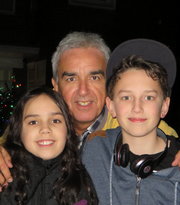 “Indigenous people possess a gift. This is a gift of healing, strong relationships and a deep connection to land, from a culture that has flourished over many thousands of years.” David Clark and Michael Liu
“Indigenous people possess a gift. This is a gift of healing, strong relationships and a deep connection to land, from a culture that has flourished over many thousands of years.” David Clark and Michael Liu
1. Nature of the Problems
As a result of the historical experiences of colonisation (and associated violence and control), forcible removal of children, and loss of culture and land, Indigenous people of Australia (and other countries) have suffered a trauma that has been passed unwittingly down through the generations.
The consequences of this historical, or intergenerational, trauma include poor physical health, mental health problems, drug and alcohol addiction, domestic violence and abuse, self-harm and suicide.
Today, the impact of historical trauma is exacerbated by economic and social disadvantage, experiences of racism and paternalism, and ongoing grief resulting from multiple bereavements. It is exacerbated by closing down of remote Indigenous communities, destruction of Indigenous sacred sites, and turning over of Indigenous land to the mining industry.
‘MIA Continuing Education: Help Us Get The Word Out’ by Robert Whitaker
 Mad in America (MIA) is one of my very favourite websites and I check it out for new content every day. Robert Whitaker, who developed the website, is one of favourite writers – his books Anatomy of an Epidemic: Magic Bullets, Psychiatric Drugs, and the Astonishing Rise of Mental Illness in America and Mad in America: Bad Science, Bad Medicine, and the Enduring Mistreatment of the Mentally Ill.
Mad in America (MIA) is one of my very favourite websites and I check it out for new content every day. Robert Whitaker, who developed the website, is one of favourite writers – his books Anatomy of an Epidemic: Magic Bullets, Psychiatric Drugs, and the Astonishing Rise of Mental Illness in America and Mad in America: Bad Science, Bad Medicine, and the Enduring Mistreatment of the Mentally Ill.
What Bob and his colleagues have done at MIA is amazing! They have really challenged the psychiatry and mental health fields to have a serious rethink about they way things are done. They have challenged the very worrying trend of assuming that all emotional distress is biological and needs ‘drugging’. They have challenged the power of drug companies and biological psychiatry. They are trying to put humanity back into human conditions.
I spent 25 years as a neuroscientist before changing career, because I felt that the field did not have the solutions for helping people recover from addiction and mental health conditions. I was also disillusioned by the misinformation that was circulated in the field and to the general public – and the outright fraud that I came across. Fifteen years of working in the ‘real’ world, I feel that I made the right decision.
‘What Does an 800 lb Gorilla in the Room Say at an ADHD Conference? The Truth…’ by Michael Corrigan
 Here is an excellent blog from Michael Corrigan on the Mad in America website from 2014. Michael shows one thing we can do to counter drug companies (and their allies) efforts to drug our children with addictive drugs used for ADHD.
Here is an excellent blog from Michael Corrigan on the Mad in America website from 2014. Michael shows one thing we can do to counter drug companies (and their allies) efforts to drug our children with addictive drugs used for ADHD.
‘This blog is a little different than my normal. I want to tell you about an inspiring ADHD conference I took part in last week and a band of 800 lb. gorillas who gently shared the obvious with adults just wanting the facts when it comes to ADHD.
First, if you didn’t know, October was ADHD awareness month. Yes, according to www.ADHDawarenessmonth.org, a website sponsored by Shire Pharmaceuticals (the philanthropic makers of Adderall and Vyvanse) and supported by a large collection of non-profit groups (e.g., CHADD) conveniently supported by the profits of many other ADHD-focused pharmaceutical companies, October was the month to celebrate awareness of ADHD. October was the month to learn more about the ADHD stimulant drugs so often prescribed.
Move along folks… nothing to see…no conflict of interest here.
Breaking Trauma Trails: Facilitating the Healing of Indigenous People
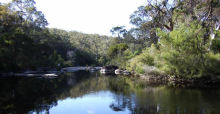 Since moving to Australia, I’ve become increasingly saddened, concerned and angered by the way that Aboriginal and Torres Strait Islanders are treated by many non-Indigenous people (including government). As a friend said the other day, it has to be seen to be believed.
Since moving to Australia, I’ve become increasingly saddened, concerned and angered by the way that Aboriginal and Torres Strait Islanders are treated by many non-Indigenous people (including government). As a friend said the other day, it has to be seen to be believed.
The damage that has been done to Indigenous people here (and in other countries) as a result of colonisation is huge and it continues today. It is a great demonstration of the resilience of Indigenous people that they have survived.
I’ve decided to devote most of my time from now on to working with Indigenous people. I’ll be running this website and working on recovery-related projects.
‘Stigma Reduction Through Recovery Contact’ by Bill White, Tom Hill and Greg Williams
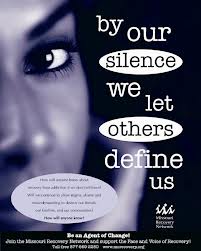 More insightful writing from Bill White and colleagues.
More insightful writing from Bill White and colleagues.
‘Debates continue on whether the stigma attached to persons experiencing alcohol and other drug (AOD)-related problems has a positive or negative social effect on the nature and magnitude of these problems. Stigma promoters argue that public castigation of excessive AOD users prevents such use at a cultural level and exerts pressure for AOD deceleration/cessation among those with AOD problems.
Stigma detractors argue that such castigation inhibits help-seeking, forces excessive AOD users into subterranean drug cultures, promotes their sequestration through mass incarceration, poses barriers for the reentry of people seeking recovery into mainstream society, and places undue blame on individuals and groups while ignoring the ecology of addiction – the environmental conditions in which alcohol and other drug problems flourish.
‘On Waking Up From the “American Dream”’ by Laura Delano
 Another powerful blog from one of my favourite writers. Please SHARE widely, Laura’s words are so important.
Another powerful blog from one of my favourite writers. Please SHARE widely, Laura’s words are so important.
“These enviable youngsters appear to be the winners in the race we have made of childhood. But the reality is very different, as I have witnessed in many of my own students and heard from the hundreds of young people whom I have spoken with on campuses or who have written to me over the last few years.
Our system of elite education manufactures young people who are smart and talented and driven, yes, but also anxious, timid, and lost, with little intellectual curiosity and a stunted sense of purpose: trapped in a bubble of privilege, heading meekly in the same direction, great at what they’re doing but with no idea why they’re doing it.” William Deresiewicz, Don’t Send Your Kids to the Ivy League, The New Republic, July 21st, 2014
Author’s Note: I encourage you to read Mr. Deresiewicz’ piece before continuing on with mine below.
Throughout my life, I’ve had access to privilege, especially in regards to my education, which included a lifetime of private schooling followed by matriculation at Harvard University.
Emotional CPR: Saving Lives, Healing Communities
Emotional CPR (eCPR) is a public health education program designed to teach people to assist others through an emotional crisis by three simple steps: C = Connecting; P = emPowering, and R = Revitalizing.
People who have been through the training consistently report that the skills they learned have helped them communicate better in all their relationships. They tell us that cCPR is a way of life.
Presenters will use real life stories to explore how eCPR is healing communities, including:
’emotional-CPR Overview’ by National Empowerment Center
Here’s a great new video from the National Empowerment Centre (NEC) in the US. I can strongly recommend both the video and the approach. Here is what the NEC has to say.
‘What is eCPR?
Emotional CPR (eCPR) is an educational program designed to teach people to assist others through an emotional crisis by three simple steps:
- C = Connecting
- P = emPowering, and
- R = Revitalizing.
The Connecting process of eCPR involves deepening listening skills, practicing presence, and creating a sense of safety for the person experiencing a crisis.
‘Six First Steps for Building Communities of Emotional Wellness’ by Matthew Cohen
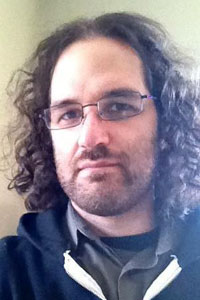 I’ve been writing a strategic document for developing a healing community for Aboriginal people here in Perth, so this blog from Mad in America is particularly pertinent. Matthew is a very interesting person – please check out his website.
I’ve been writing a strategic document for developing a healing community for Aboriginal people here in Perth, so this blog from Mad in America is particularly pertinent. Matthew is a very interesting person – please check out his website.
‘I am being asked by a number of grassroots communities to facilitate a dialogue about how they can better welcome and support individuals who experience emotional distress. This is a challenge for many aspiring peers and allies in a culture where responsibility for our individual well-being has been increasingly transferred to psychiatrists, doctors, and other health professionals.
Even among our movements for alternatives, we often find ourselves replicating disempowering patterns of relying on experts, institutions, and formalized programs to help us through our trying times.
Excerpt from Brad’s Recovery Story: A Spiritual Awakening
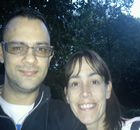 Here’s an excerpt from Brad’s Story. Brad was in the process of breaking away from a life of drinking, crime and violence.
Here’s an excerpt from Brad’s Story. Brad was in the process of breaking away from a life of drinking, crime and violence.
‘3. Starting with The Breakfast Club
In 2006, Thames Valley Police informed me that Paula had taken her own life. This made me angry. I thought she was selfish leaving three kids behind, although I’d left my kids behind years ago.
I continued drinking and six months to the day my best friend Mick died in my arms at Calderdale Royal, having fallen and banged his head. Mick’s death crushed me. It was this was the first time I can remember showing any real emotion. To this day, I shed a tear when talking about him, as I am now. We had done everything together.
An Update From StoryTeller Iain Donald
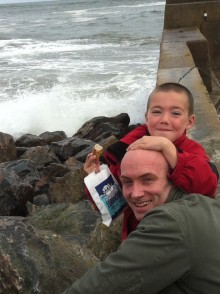 “I regret to a certain degree ever getting involved with drugs, but involving myself with drugs and battling the chaos that goes along with that lifestyle has made me who I am. And I am really happy with who I am.”
“I regret to a certain degree ever getting involved with drugs, but involving myself with drugs and battling the chaos that goes along with that lifestyle has made me who I am. And I am really happy with who I am.”
I recently heard from Iain Donald, author of one of our Stories, This is Me. Iain, from Scotland, is coming up to four years drug-free.
In brief, his Story describes his addiction to heroin and crack cocaine, a period spent inside prison, time on methadone maintenance programmes, and support from a treatment service in Glasgow – amongst many other things. Most importantly, Ian met and fell in love with Nadene and her wonderful son William and they have settled down as a family – and had a new family member, Harvey. Iain works for the Scottish Association for Mental Health in one of their homeless units.
The Role of Historical Trauma in Indigenous Mental Health and Addictions
In the past couple of months, I have become increasingly interested in historical trauma and the impact it has had on the health and well-being of Aboriginal people here in Australia, and in other indigenous groups around the world. I’ll be talking more about it in the coming months.
For now, I want to introduce you to the promotional trailer of the film ‘Sharing Tebwewin’.
“Sharing Tebwewin” (Sharing the Truth) is a 30-minute educational documentary designed to help health workers become more “culturally competent” in their work with First Nations people.
Knowing what to do to support recovery
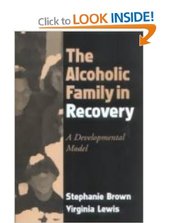 Here’s an excellent description of ‘tasks’ for treatment workers, recovery coaches or peer supporters. This quote is taken from Stephanie Brown’s excellent book The Alcoholic Family in Recovery: A Developmental Model.
Here’s an excellent description of ‘tasks’ for treatment workers, recovery coaches or peer supporters. This quote is taken from Stephanie Brown’s excellent book The Alcoholic Family in Recovery: A Developmental Model.
‘Being in recovery is a normal process, with clearly defined, predictable tasks and stages. It is absolutely vital for therapists to know what is normal over time in the process of recovery or they may inadvertently try to treat, stop, or fix what is normal and necessary to growth.
It is the therapists job to stay out of the way of the natural healing process, to monitor progress, and to recognize past or current roadblocks that might interfere with people’s ability to remain abstinent and engaged in recovery.


